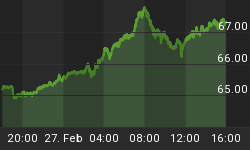"Life is 10 percent what you make it and 90 percent how you take it." - Irving Berlin 1888-1989, Russian Composer
China and India have both been building a whole bunch of cement factories and steel mills; this means it's just a matter of time before they start to dump cheaper cement and steel on the markets. Shortages will suddenly disappear and surpluses will appear and the big companies in the west will get hit hard. In fact China is very close to becoming an exporter from being a net importer of cement. Americans have suddenly become more conservative in their usage of oil this will temporarily create surpluses which should have some downward pressure on oil; this is currently happening as is evidenced by the current prices of oil. There is one caveat if a major refinery should break down or close for an extended period of time and this deficit cannot be made up with imports then we could witness another huge spike in petroleum prices even in the face of falling oil prices.
Add in the fact that China and possibly India will soon become net exporters of cement and Steel and there is a good possibility that this part of the commodities sector could get whacked hard. China is the world's largest steel maker; out put last year increased by more than 23% to roughly 272 million metric tons according to the international Iron and Steel institute.
This unfolding of events could possibly kill the inflation argument since today's geniuses judge inflation in terms of prices; this would put less pressure on the Feds to raise rates and they might even do the unthinkable which is a lowering of rates. If the cement and steel sector get whacked and the penguins start screaming that the inflation threat is now over several markets in the commodities sector could experience a rather hard correction. One such market is copper; it's already rather overextended and a small ripple would be enough to push it into a hard correction.
Taking this one step further as stated before it would give the inflation fighting pundit's ammo to support their argument that inflation is no longer threat. This would then have the effect of extending the business cycle, which means that the markets could experience a final ballistic move up and the hard correction that awaits the housing sector would be delayed. This would become more of a reality if the Feds actually decide to lower rates sometime next year.
So to summarize
China and India flood the market with cheap steel and cement. Since China alone accounts for over 40% of the worlds demand for cement the sudden elimination of China as a buyer and now exporter will shred this sector. The same scenario holds true for steel. Manufacturers of steel and cement in the west could literally be destroyed. This in turn will make it look like inflation is not a threat. Everyone and his granny will buy this argument and the Feds might end up actually lowering rates. This lowering of the rates will extend the business cycle and delay the huge correction that awaits the housing sector. We can see further anti inflation action in the actions of many big companies; many are either selling of assets, paying down debt, issuing huge multi million (sometimes billon) dollar buy backs or simply refusing to pay the pensions for their employers by declaring bankruptcy. The elimination of pensions is a huge cost reduction. Very little money is being put into building new facilities or buying new equipment.
If that scenario unfolds we can expect the markets to rally to extreme heights; indeed the action of the all the major indices is very enlightening as all of them have put in new 54-month highs. The transports are one of the most economic sensitive sectors of the market and if the Dow transports can put in a series of new highs then it's just a matter of time before the rest of the markets follow suit. Everything will look good, the dollar will have rallied very strongly, the markets will also have put in new highs and it will look like everyone is doing well; that's when the bomb will drop and we should experience a rather blood curling correction.
Bear in mind that as of now the above info only represents a scenario that has a good chance of becoming reality.
"Some men have thousands of reasons why they cannot do what they want to, when all they need is one reason why they can." Willis Whitney















